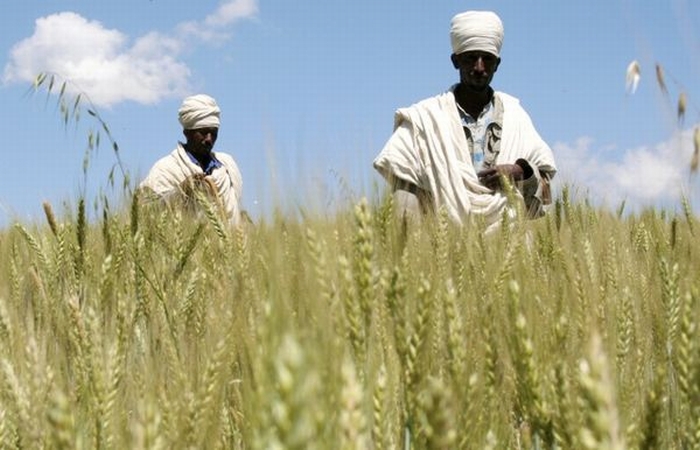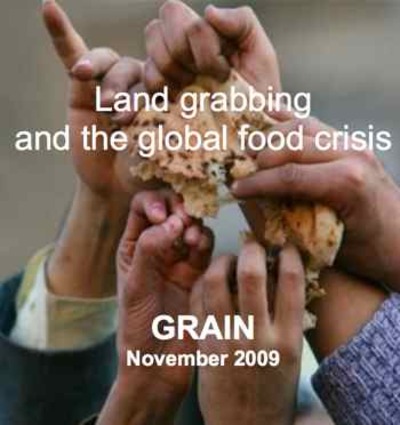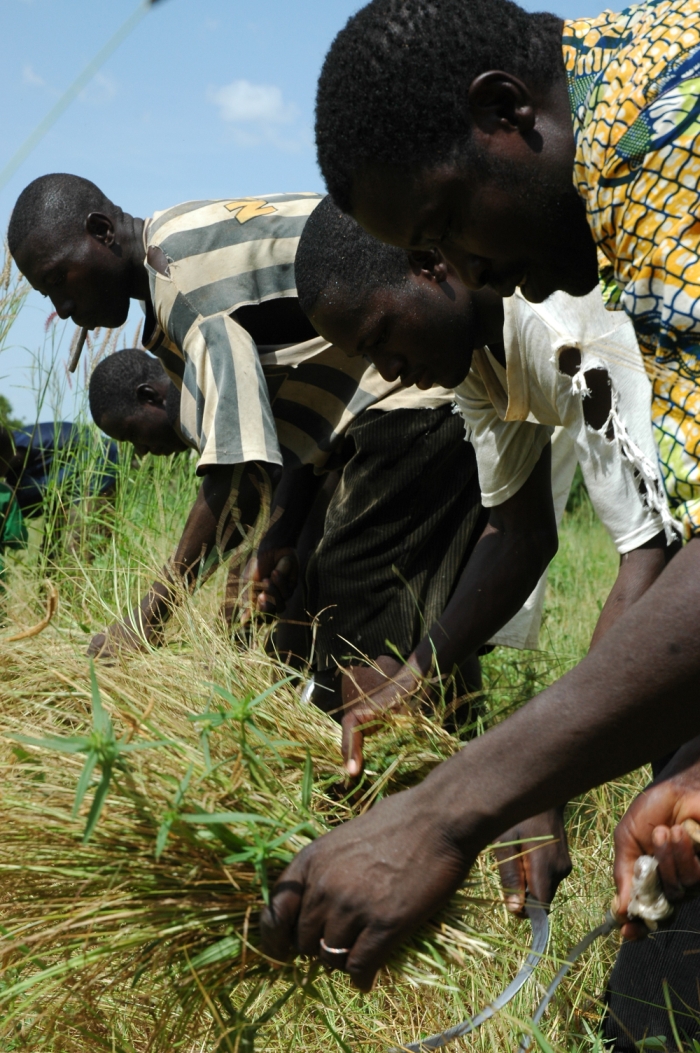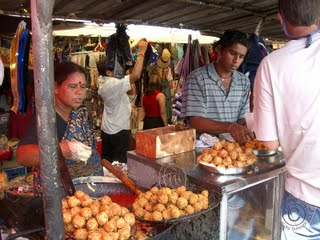Korea’s overseas development backfires
- Korea Times
- 04 December 2009
That Korea is no longer "importing" this food that is being grown overseas implies that this land is effectively Korean. This amounts to agricultural imperialism.

That Korea is no longer "importing" this food that is being grown overseas implies that this land is effectively Korean. This amounts to agricultural imperialism.

Zambian government has made agriculture development a priority as evidenced by the reserving of 1 million hectares of land for cultivation and investment, according to foreign investor Neil Crowder

Ethiopia's potential can be maximized only if we Ethiopians are the producers and sellers of our own agricultural products. What Meles Zenawi is doing now is putting this upside down. He made our potential buyers the sellers of our commodity.

"Leasing or giving away a huge chunk of land to foreigners, who will produce food to be shipped to their own people, and to hope that the money gained in profits will feed the local people is the height of naivete," Gathuru Mburu of ABN said

A planned large-scale commercial farming or food estate project in Merauke, Papua, is expected to trigger fresh investment of up to US$5.3 billion in the area in the next five years.

After signing a 25-year lease from Kenya's Lands Ministry in Nairobi, Burgess made auxiliary payments to various groups to ensure that the plan could continue unhindered. Unfortunately, the people of the Luo tribe and members of other tribes in similar situations are unhappy.

Mineks has withdrawn from Vision3, the strategic alliance between three major Gulf banks to bring a $9 billion investment trust to Turkey, particularly in the Southeastern Anatolia Project, which hit the rocks when the banks were affected by the continued spiral of the financial crisis.

Official statement of the Oromo Liberation Front declaring the Oromo farmland deals between the Ethiopian government and third parties "null and void".

An illustrated overview of the global land grabbing trend, with tables and figures.

In Mali the government has approved long-term leases for outside investors to develop more than 160,000 hectares of land. Local farmers say they fear being pushed out.

This paper examines two failed land acquisition processes for food and biofuels production in Africa (SEKAB-Tanzania and Daewoo-Madagascar) with the aim to establishing more equitable governance strategies.

"Mauritius cannot depend on [Mozambique and Madagascar] for sustainable agricultural development. It’s better for us to cultivate our own land to produce more food and leave some land for future generations."